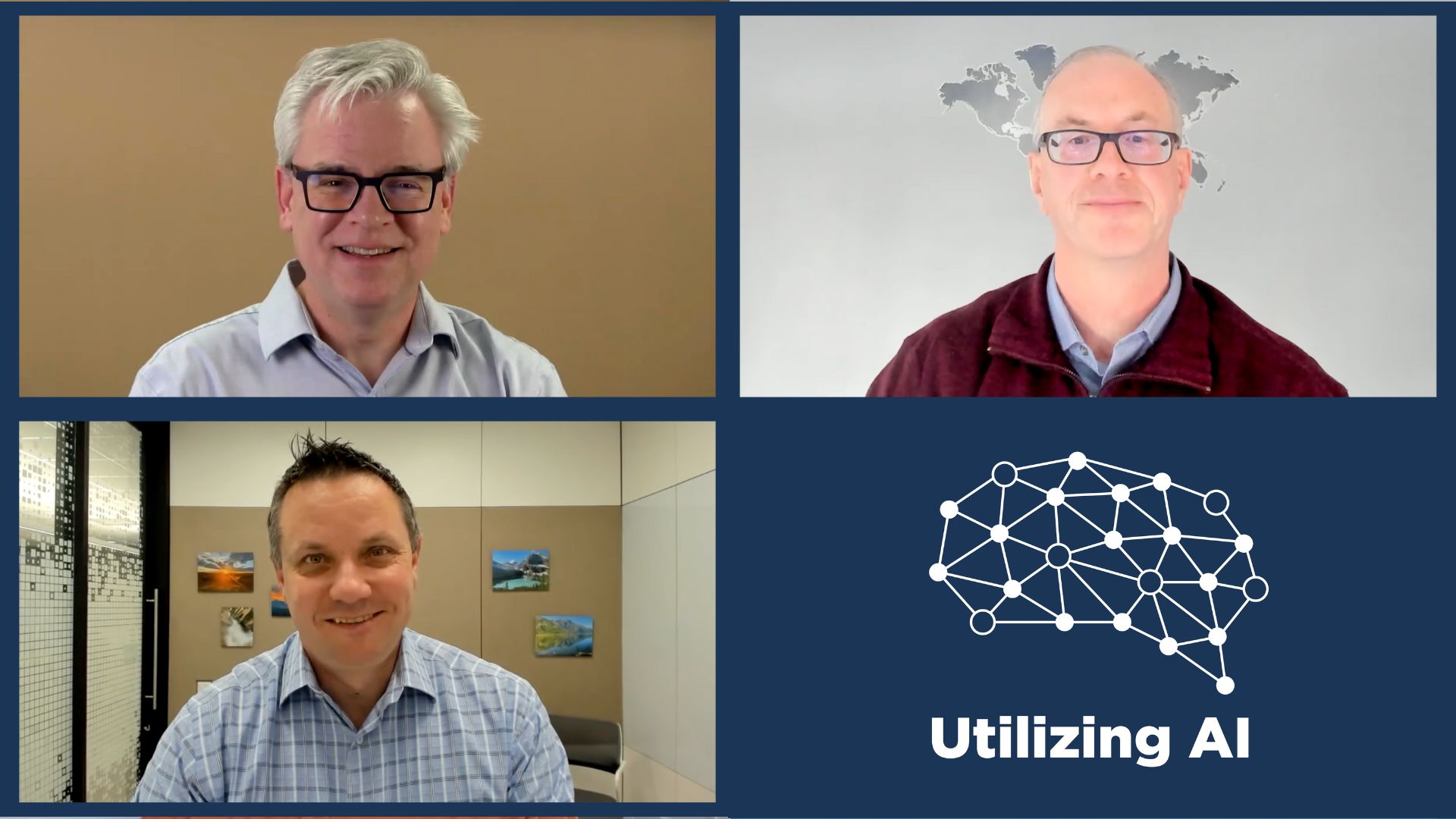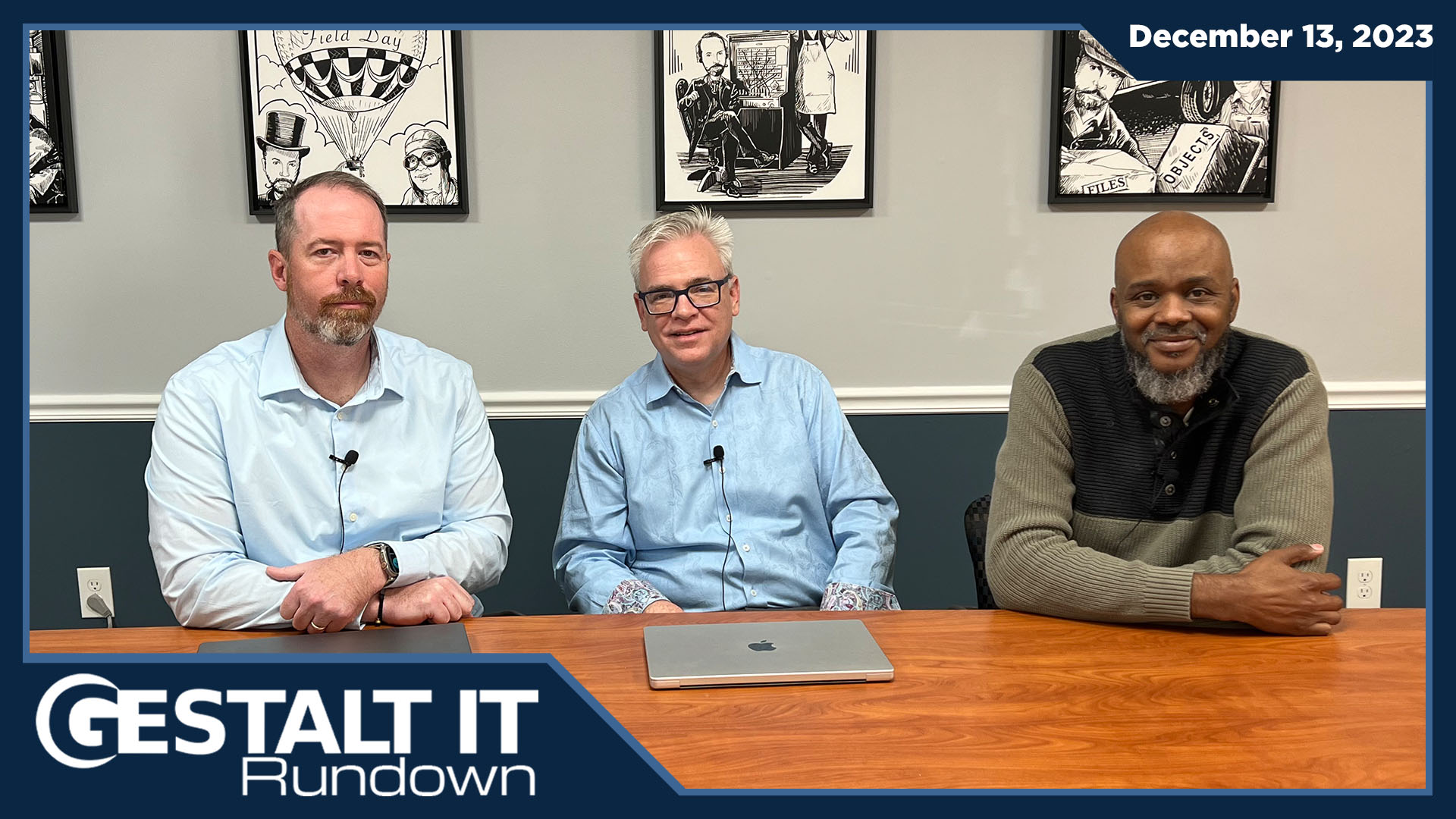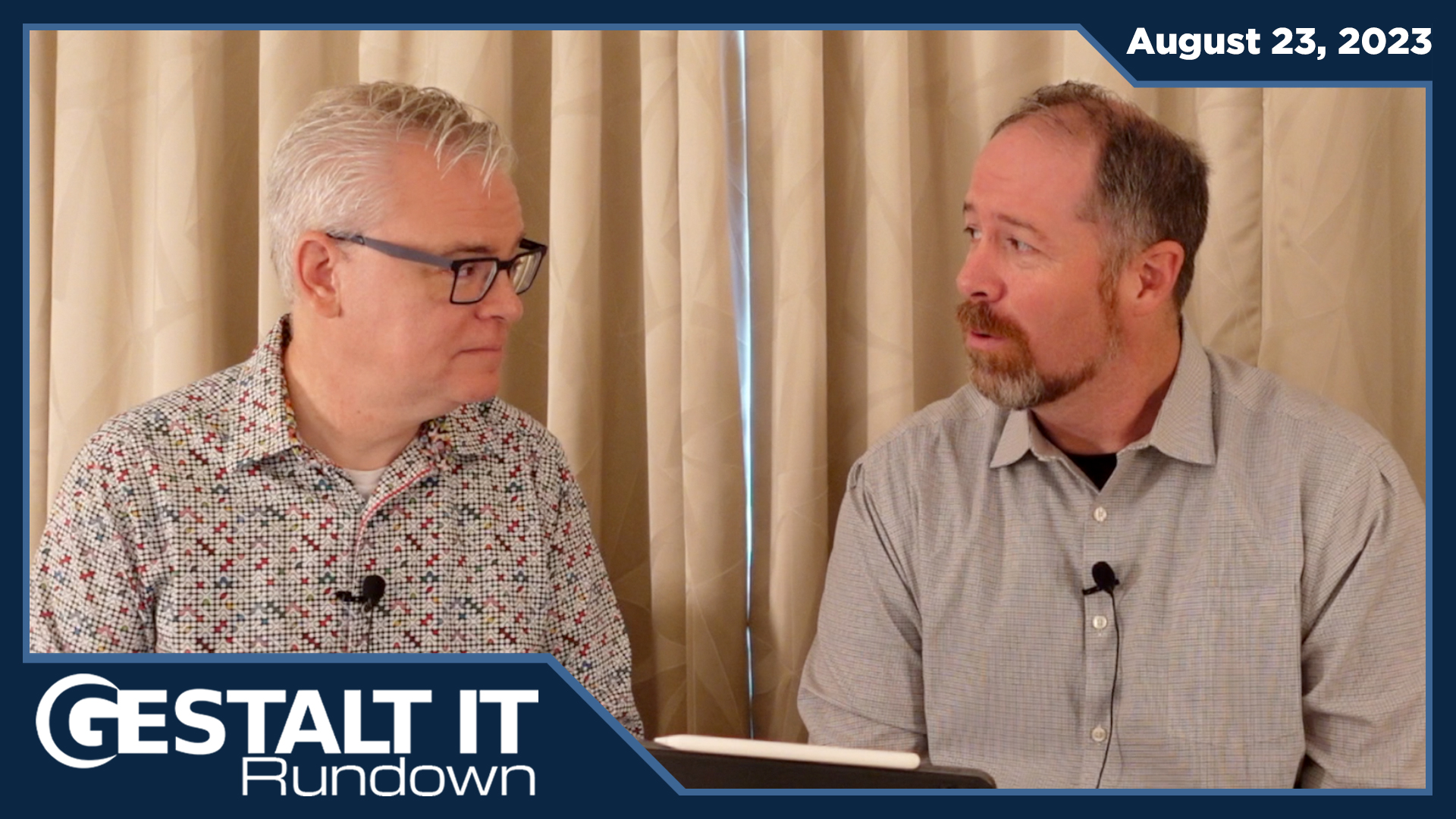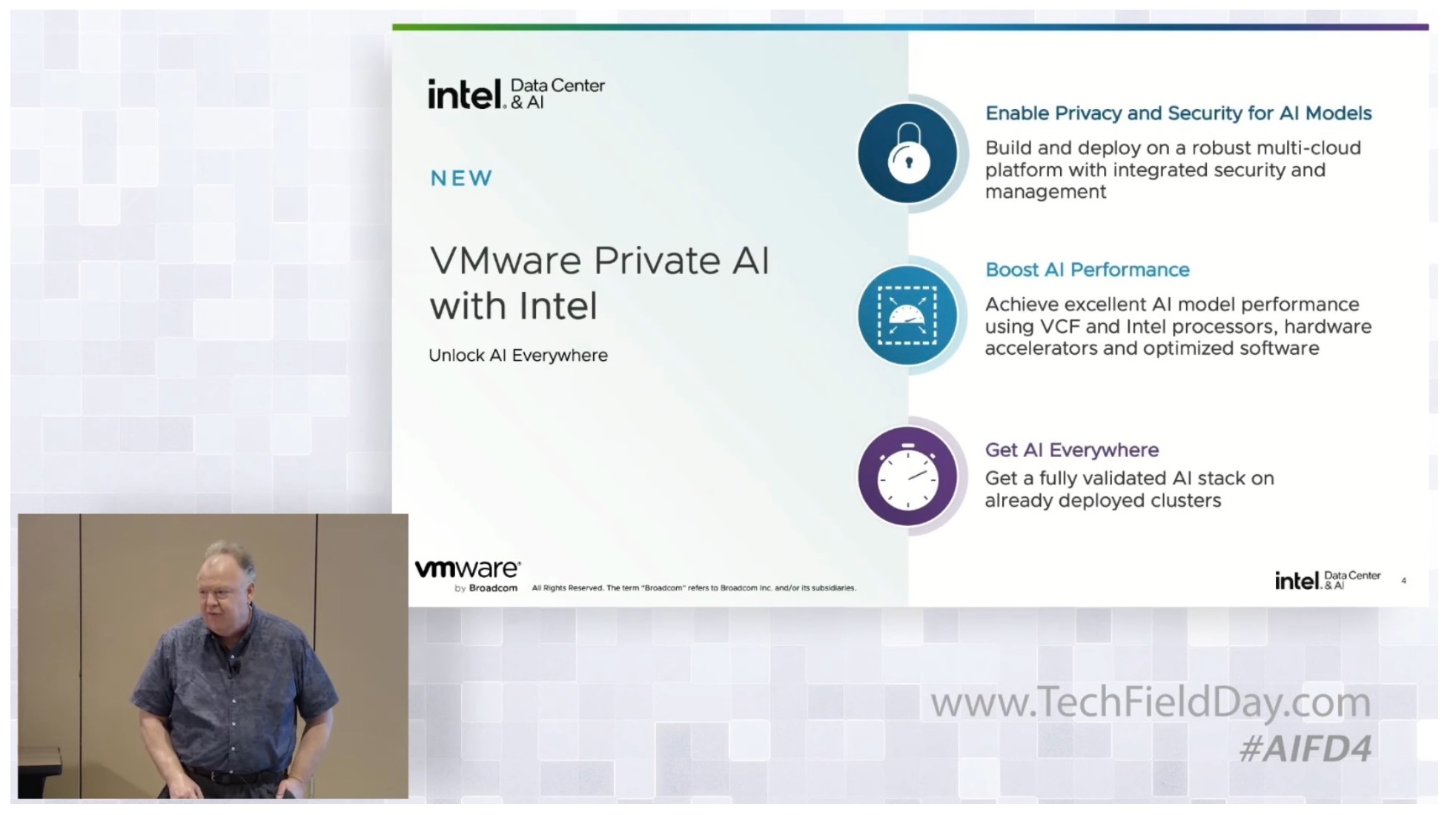Artificial intelligence has been the biggest driver of efficiency of our time. The barrage of AI tools and services hard launched in the wake of the success of ChatGPT, speaks to businesses’ eagerness to leverage it for just about anything. But to move AI directly into the enterprise, there needs to be a solution first that provides the foundation-level support.
No other company in the market knows digital infrastructure better than VMware by Broadcom. In the multi-cloud world, VMware is everywhere where businesses are. Amid the worldwide GenAI shakeup, last year, they announced VMware Private AI, a solution that promises to transform the way businesses do artificial intelligence.
VMware Private AI – A Secure and Optimized Digital Foundation for AI
VMware by Broadcom has two clear objectives – to democratize GenAI, while addressing the privacy and control concerns around it. VMware Private AI is a product ecosystem that provides the foundation to enable four key enterprise use cases, namely, code generation, IT operations automation, contact center resolution, and advanced information retrieval.
The first code generation use case VMware took on was with an open-source model for the ESXi kernel. “We want to try the most difficult use case with our most opinionated software engineers,” says Chris Wolf, Global Head of AI and Advanced Services, during a presentation at the AI Field Day event in California. “When we started using our internal solution based on the StarCoder open-source model, we had an acceptance rate of 92% software engineers,” he informs.
The advanced information retrieval is particularly useful in call center resolution use cases, in the sectors of healthcare, legal and sales. “Being able to allow your support technicians to get answers more quickly has real business value,” Wolf says.
Wolf outlines the value proposition, and the reasons why people should adopt VMware Private AI. For starters, customers can choose from a wide selection of hardware and software. “Different lines of business have different priorities, or there are different services that just work better for them. Because of that, singular investment in infrastructure allows them to better optimize performance moving across.”
The solution is supercharged for AI workloads. “We offer 5 to 6% better performance than bare metal,” Wolf declares. “That’s strictly attributed to our scheduling algorithms and what we can do there, but you can get all the benefits of generative AI, virtualizing and sharing your GPUs without sacrificing performance,” he adds.
VMware Private AI is also a standout solution where deployment flexibility is concerned. “On the deployment side, we’re doing things that nobody else is doing. We can stand up an AI cluster with your models preloaded into memory in about 3 seconds,” he says. “You can’t do that in the public cloud, not anything remotely close on bare metal. We’ve seen from industry partners that it takes 5 to 7 minutes on bare metal.”
VMware by Broadcom is working with a broad pool of partners to make the concept of open ecosystem a reality. “We are really looking to include our group of partners, and you’ll see more big logos added, going forward this year,” Wolf says.
Circumventing Privacy and Control Tradeoffs
As businesses cull vast amounts of data to feed into AI models, fresh concerns have emerged around data privacy and control. Companies are wary about the amount of privacy and security they are giving up in exchange for adopting AI. Accidental data exposure, lack of control, and privacy issues are the top tradeoffs.
The VMware Marketing AI Council is an initiative geared at alleviating these concerns. Promoting ethical and responsible use of GenAI through AI literacy, the council has created a series of guidelines to steer its global marketing team towards responsible engagement.
“We’ve had governance practices that we put into place. It’s an area where we’re ahead of a lot of our peers in the industry that haven’t yet set up that type of governance,” Wolf shares.
The VMware Private AI solution builds on that effort. Under Private AI, VMware currently offers two solutions. VMware Private AI Foundation with NVIDIA is a turnkey solution that provides the foundation for fine-tuning and inferencing workloads. It includes both GenAI software and accelerated computing for maximum performance.
“We’re focused on fine-tuning and inferencing use cases where you gain the biggest benefit from virtualizing and slicing GPUs,” says Wolf.
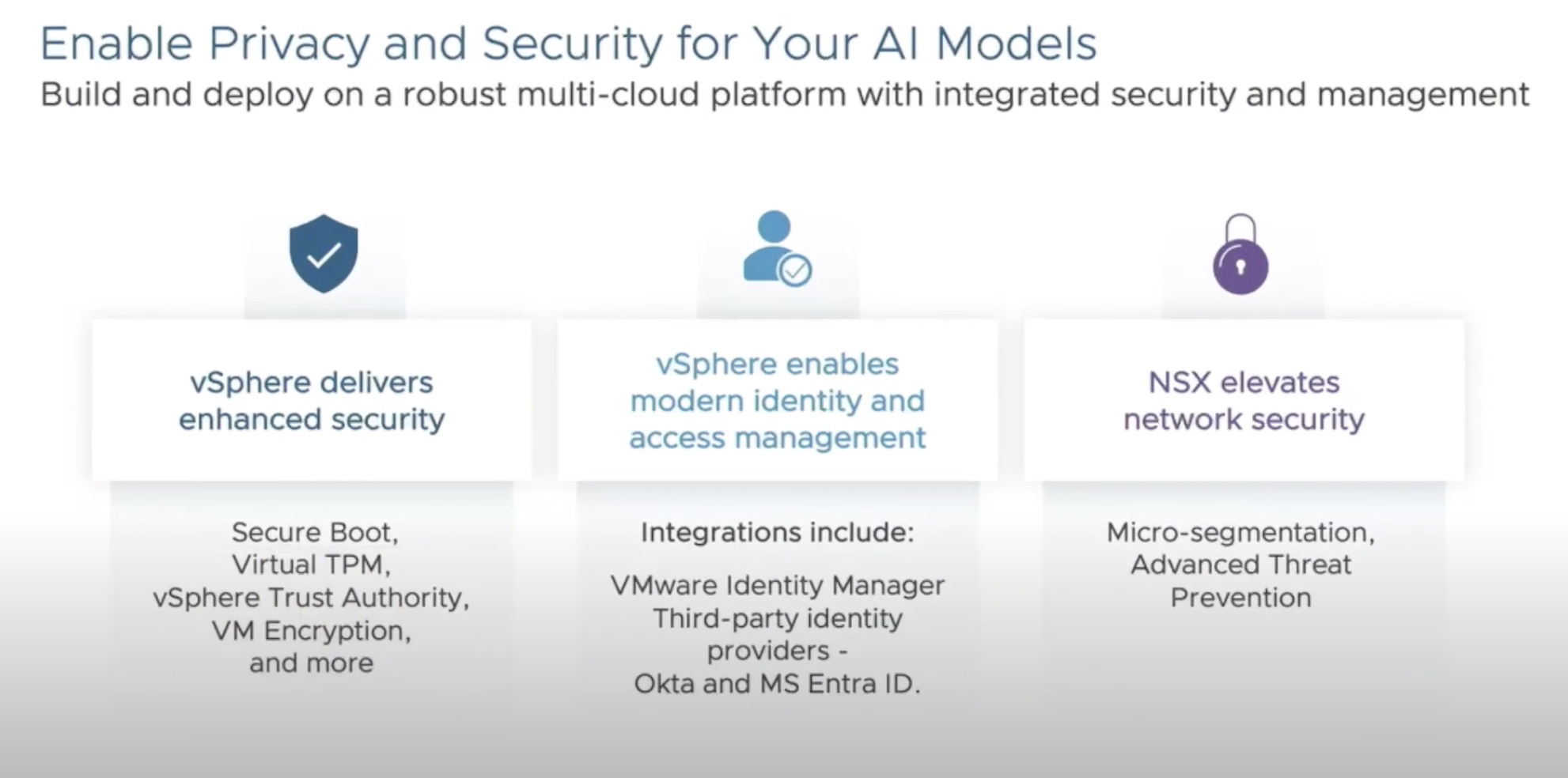
Anybody starting with the VMware Cloud Foundation (VCF) can layer the add-on capabilities on top of it. “Everybody needs a vector database for RAG applications. That’s going to be the added benefit. You get that full NVIDIA software stack as well. Everything is well-integrated.”
The second solution is the VMware Private AI Reference Architecture for Open Source. It is an architectural blueprint that allows users to leverage all the best-of-breed models, frameworks and open-source projects to address a broad set of business needs.
“Customers can use our reference architecture if they want to take a more DIY approach. We have all of the prescriptive guidance for them,” says Wolf. “But going forward, we want customers to run a really competent IAS first, which is VCF, and then start to layer Private AI on top of that, bring in GPUs, and run AI services. We want to first make that environment super-optimized and efficient.”
There is a host of integrated VMware security features that customers can tap into to ensure privacy and security of their AI models. Solutions like vSphere and NSX present security features like virtual TPM, VM encryption, secure boot, micro-segmentation, advanced threat protection and integrations with VMware and third-party identity managers, for tighter security and better access management.
Aside from NVIDIA, VMware by Broadcom is also partnering with Intel and IBM on the Private AI initiative.
For a more in-depth look, watch VMware by Broadcom’s presentations, or their joint appearance with Intel from the AI Field Day event. Also check out Alastair Cook’s article on The Futurum Group website for the analyst’s take.

